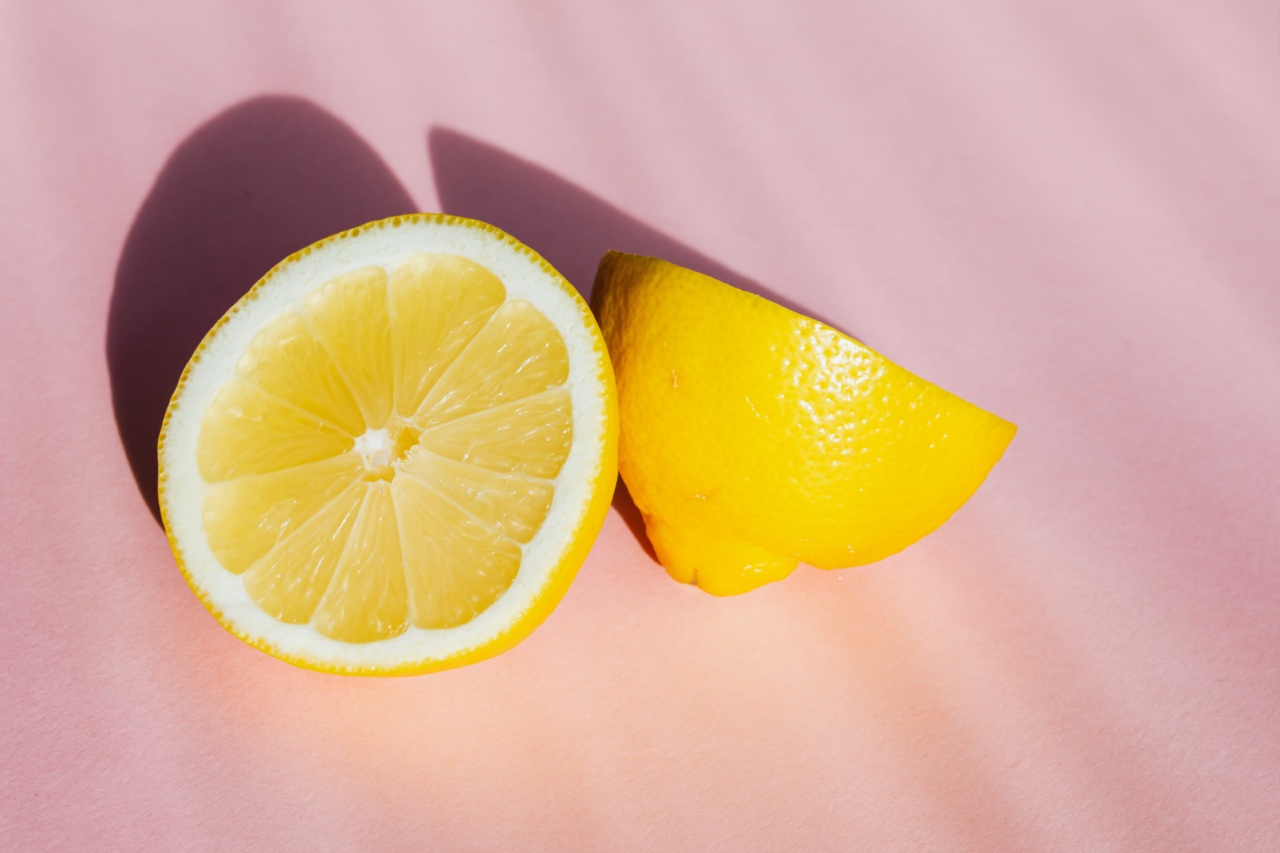Headaches can be extremely debilitating and can significantly impact your daily life. From tension headaches to migraines, finding relief can often be a challenge.
While there are medications available to alleviate the pain, a natural approach to managing headaches is equally important. One way to tackle headaches is by incorporating certain foods into your diet while avoiding others. In this article, we will explore the foods that can help relieve headaches and those that may trigger them.
Foods to eat for headache relief
If you’re someone who frequently experiences headaches, incorporating the following foods into your diet may help alleviate symptoms:.
1. Ginger
Ginger has long been used as a natural remedy for various ailments, including headaches. It contains compounds that have anti-inflammatory properties and can help reduce migraine pain.
Consuming ginger tea or adding fresh ginger to your meals can be beneficial.
2. Magnesium-rich foods
Magnesium deficiency has been linked to migraines and tension headaches. Including magnesium-rich foods like spinach, avocado, almonds, and black beans in your diet can help reduce the frequency and intensity of headaches.
3. Omega-3 fatty acids
Omega-3 fatty acids possess anti-inflammatory properties, which can be beneficial for those with chronic headaches. Foods like fatty fish (salmon, trout), chia seeds, and walnuts are excellent sources of omega-3 fatty acids.
Adding these to your meals can help alleviate headache symptoms.
4. Watermelon
Dehydration is a common trigger for headaches. Consuming watermelon, which has a high water content, can keep you hydrated and potentially prevent or alleviate headaches.
Additionally, watermelon contains antioxidants and vitamins that promote overall well-being.
5. Peppermint
Peppermint, whether in the form of essential oil, tea, or fresh leaves, has been shown to relieve tension headaches. Its cooling effect helps relax muscles and ease tension, providing relief from headache symptoms.
6. Dark chocolate
Good news for chocolate lovers! Dark chocolate, in moderation, can actually help relieve headaches. It contains natural compounds that reduce inflammation and act as a natural painkiller.
Opt for dark chocolate with at least 70% cocoa content for maximum benefits.
7. Spinach
Spinach is rich in nutrients, including magnesium, riboflavin, and vitamin B12, all of which can help mitigate headache symptoms. Incorporate spinach into your salads, smoothies, or sauté it as a side dish to reap its benefits.
8. Flaxseeds
Flaxseeds are another excellent source of omega-3 fatty acids. Grinding them before consumption enhances their nutritional value. Sprinkle ground flaxseeds on your cereal, yogurt, or add them to baked goods for an added nutritional boost.
9. Bananas
Potassium deficiency can sometimes trigger headaches. Bananas are rich in potassium and can help maintain proper muscle and nerve function, potentially preventing headaches. They also contain magnesium, which further supports headache relief.
10. Chamomile tea
Chamomile tea has soothing properties and can help relieve tension headaches. Its calming effects have been used for centuries to reduce anxiety and promote relaxation. Enjoy a warm cup of chamomile tea during a headache episode to ease the pain.
Foods to avoid to prevent headaches
Avoiding certain foods can help prevent headaches or reduce their frequency. These are some common culprits that may trigger headaches:.
1. Caffeine
While caffeine can sometimes provide temporary relief for headaches, excessive or sudden withdrawal from it can trigger migraines.
Pay attention to your caffeine consumption and consider gradually reducing it if you suspect it is contributing to your headaches.
2. Alcohol
Alcohol, especially red wine, is a common trigger for migraines. It contains compounds like tyramine and phenols, which can cause blood vessels to expand and trigger headaches. Limiting or eliminating alcohol consumption may help prevent migraines.
3. Processed meats
Processed meats like hot dogs, sausages, and deli meats contain nitrites, which can trigger headaches in certain individuals. Opt for fresh, unprocessed meat options instead.
4. Aged cheese
Aged cheeses like blue cheese, Parmesan, and cheddar contain tyramine, a naturally occurring compound that can cause headaches. If you’re prone to headaches, consider moderating your intake of aged cheeses.
5. Monosodium glutamate (MSG)
MSG, commonly found in Chinese cuisine and processed foods, is known to trigger migraines in sensitive individuals. Read food labels carefully and avoid consuming foods with added MSG if it tends to trigger your headaches.
6. Artificial sweeteners
Artificial sweeteners like aspartame and sucralose have been reported to trigger headaches in some individuals. Avoid consuming products that contain these sweeteners if you suspect they might contribute to your headaches.
7. Citrus fruits
Although citrus fruits are generally nutritious, they can trigger migraines in some individuals due to their high levels of tyramine. Monitor your intake of citrus fruits and pay attention to any correlation with headache episodes.
8. Nuts and seeds
While nuts and seeds are generally healthy, some individuals may be sensitive to their high tyramine content. Observe if specific nuts or seeds, such as peanuts, almonds, or sesame seeds, trigger your headaches and adjust your diet accordingly.
9. Onions
Onions contain sulfites, which can dilate blood vessels and prompt headaches. For individuals susceptible to headaches, reducing onion consumption or sautéing them thoroughly before consumption may help avoid headaches.
10. Excessive salt
Consuming excessive amounts of salt can lead to dehydration, which is a common headache trigger. Be mindful of your salt intake and opt for healthier seasoning alternatives like herbs and spices instead.
























